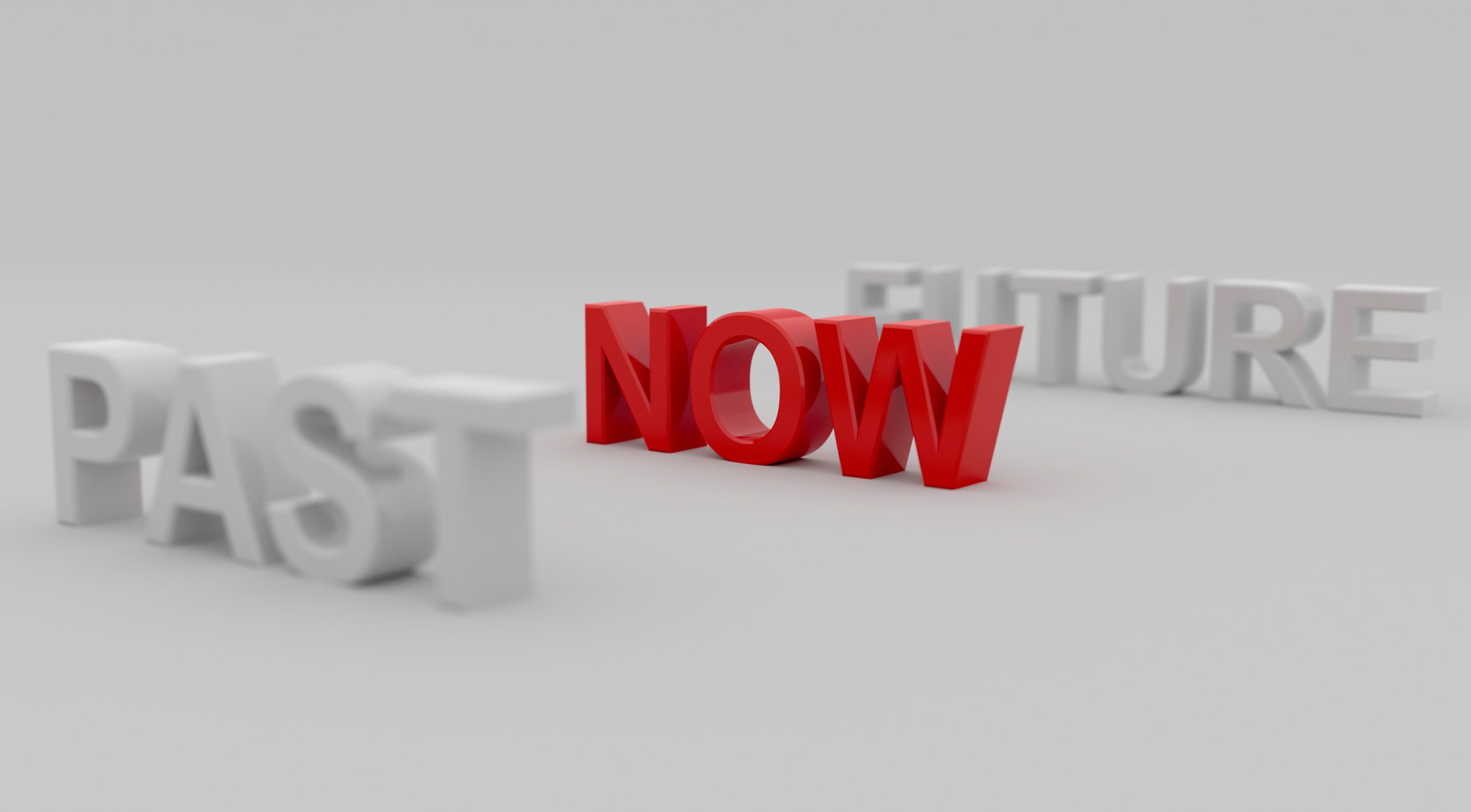Are you present or preoccupied?

I read an article over the weekend by a journalist who had taken her husband and teenagers on a digital detox break. She hoped that time without devices would help them get on better – and be less irritable!
Smartphones are the obvious saboteur of being present to our lives, and the people around us. We’ve all been with a person who seems more interested in their phone than us, or been that person ourselves.
However, you don’t need a phone to be preoccupied.
In body but not in spirit
A common scenario in my house : Husband and I having dinner at the kitchen table listening to news on the radio. Husband comments on news item. I have no idea what he’s referring to because I’ve been in my head thinking about something completely different.
Chris Bailey, author of Hyperfocus, says our mind wanders about 47% of the time, the majority of which is about the future.
There are times when mind-wandering can be a good thing – for example, for our creativity. However, often our preoccupations involve worrying, ruminating or making assumptions about what’s happening around us.
For example, one Director I worked with wanted to increase her impact in meetings with new clients. She spent most of the time worrying about whether to say something for fear of looking stupid – and often ended up saying nothing at all.
On a different note, a COO I worked with spent meetings with team members preoccupied by how she thought things should be getting done faster and frustrated at their apparent lack of progress.
In both cases, being preoccupied was impacting their capacity to connect and engage with others and, ironically, getting in the way of achieving their goals.
From preoccupied to present
When you find your attention is somewhere other than the present, here are three strategies to bring yourself back :
Come back to your body. Being consumed by worry or frustration is a symptom that your fight/flight response is activated. When you realise you’re in your head, bring your attention back down into your body by feeling your feet on the ground and breathing into your belly.
Attention out. Direct your attention outwards. Notice what you can see, feel and hear around you. For example, focus on everything red in the room, feel the texture of the table you’re sitting at, or pay close attention to what the person with you is wearing.
Be curious. What would you like to know more about? What questions can you ask? Focus on what you don’t know rather than what you think you do.
Happy endings
When the COO slowed down and listened to her team members, she discovered what was hampering progress and was able to work with them to come up with an effective solution. In the process, they opened up to her more as they felt a greater sense of connection and trust.
The Director practised staying present in new client meetings by feeling her feet on the ground and breathing into her belly. Through asking questions and listening attentively, it became clearer to her how she could add value which in turn built her confidence.
And finally…
A quote from the late Buddhist monk Thich Nhat Hahn : “The present moment is the only moment available to us. It is the door to all moments.”
Alison Reid is an executive and leadership coach who helps senior managers and directors lead with confidence and stay calm under pressure. She's the author of Unleash Your Leadership : How to Worry Less and Achieve More. Download an extract or buy the book.
Sign up to her mailing list to receive blogs like these direct to your inbox.
